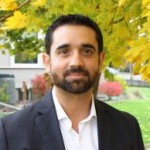This post was contributed by Margaret Jungk, Chair of UN Working Group on Business and Human Rights, Mauricio Lazala, Deputy Director of Business and Human Rights Resource Centre, and Mark Hodge, Executive Director of Global Business Initiative on Human Rights.
The upcoming 2015 UN Forum on Business and Human Rights offers an opportunity to pay increased attention to the simultaneous application of all three pillars of the UN Guiding Principles on Business and Human Rights (UNGPs), and the dynamics between their implementation. How can State action (regulatory or other) best encourage better corporate conduct? Are companies considering potential adverse impacts on access to remedy as part of human rights due diligence? Do corporate accountability efforts ever divert attention from State duties?
Focusing on the interplay between Protect, Respect and Remedy is the driver behind two sessions that the UN Working Group – supported by the BHHRC and GBI – will be convening at the Forum. The sessions will explore cases in Myanmar, Malawi, the United States and Cambodia in which States, the private sector, rights-holders and civil society are beginning to work in a coordinated fashion on human rights impacts and issues in ways that are consistent with all three pillars of the UNGPs.
Since the endorsement of the UNGPs in 2011, a great deal of focus and debate has been on how each pillar of the UN “Protect, Respect and Remedy” Framework is being implemented. Generally speaking, conferences, research, tools, projects and dialogue address the detailed, technical implementation and challenges of delivering on the promise of each pillar. This is necessary and urgent given implementation of the UNGPs is nascent and requires policy, process and practice innovations within complex institutions.
However, there is often less attention given to instances in which all three pillars of the UN Framework are, or need to be, applied simultaneously to bring about meaningful change in the lives of rights-holders.
This is problematic because lack of simultaneous action will only ever lead to partial or fleeting human rights protection. Neither effective State action alongside bad corporate conduct, nor good quality human rights due diligence alongside lack of access to remedy, nor strong remedial avenues without company capacity to prevent adverse impacts can deliver strong solutions to business and human rights challenges (especially the most severe and intractable ones).
This was the spirit of one key conclusion from a session convened by the UN Working Group that the BHRRC and GBI supported at last year’s Annual Forum. The panel profiled civil society and business relationships around specific cases. This included Vale and Human Rights Watch discussing interactions around land in Mozambique; Nestlé, Oxfam and the International Cocoa Initiative related to child labor in Ghana; and Inditex and IndustriAll regarding labour rights protections in Turkey.
The session was very popular but it lacked input from home and host governments. One learning from the session, highlighted in a BHRRC and GBI joint report, and also reflected in a report the Working Group presented to the Human Rights Council in June 2015 (A/HRC/29/28/Add.3), was:
Without government engagement, “Pillar 2” partnerships may only partially address the human rights impacts associated with business: Ultimately, partnerships between diverse private actors (whether business or civil society) are generally, at some level, trying to fill a governance gap due to a failure of the State to meet its duty to protect (due to lack of political will or capacity). This suggests that more of these relationships need to have government around the table in order to sustain, widen and scale progress. At the next UN Forum, more examples of efforts that address specific cases should be included but with the extra dimension of host and home governments discussing their respective roles also.
So, as we recognize and build on substantial progress in the global landscape, applaud the leadership shown by certain States, companies and industries, confront the unacceptable reality of ongoing business-related human rights abuses, and seek out serious attention to lack of access to remedy for victims, it seems wise to explore the state of play of efforts that use the holistic lens the UNGPs provide.
Do the UNGPs have the potential to simultaneously animate and guide local actors from across government, business, civil society and rights-holders to find solutions and paths forward? Are local government officials, operational mangers and impacted people seeing UNGPs progress and coherence in their day-to-day lives? Does the “Protect, Respect, Remedy” Framework provide a kind of container or vehicle within which different actors can debate, discuss, contest, collaborate and build mutual accountability? What capacity and power dynamics need to be addressed to do this successfully? Can local experiments and success stories of actual “on the ground” implementation of the UNGPs drive efforts by States, industry bodies, investors, and civil society to scale good practice?
To explore these questions and others, the two sessions at the Forum will profile the work of diverse stakeholders in relation to four specific challenges/cases. For short overviews of each case please follow the hyper-links provided.
- On November 16th at 3pm, the first case to be discussed will be the human rights impacts of the Thilawa Specical Economic Zone in Myanmar. Speakers will include representatives from the Myanmar Centre for Responsible Centre; the Japanese joint-venture operators, a representative from a displaced community working with the NGO Earth Rights International on a community-led grievance mechanism, and the Myanmar government. The second case will be a project aimed at establishing a living wage in Malawi’s tea growing industry by 2020. Speakers will include representatives from Oxfam and the Ethical Tea Partnership.
- On November 18th at 3pm, the first case cases to be discussed will be labor rights protections for tomato growers in Florida (the case of the Fair Food Program). Speakers will include representatives from the Coalition of Immokalee Workers, Compass Group (a buyer) and local government. The second case will address labor rights protection in Cambodia. Speakers will include representatives from H&M, the Workers’ Arbitration Council of Cambodia, and from the ILO.
As well as joining us to engage in dialogue with the individuals at the front lines of these complex cases, we strongly encourage participants at the Forum to attend and share their own success stories (and indeed failed attempts) to enliven all three pillars at a local level. An early and striking lesson from our planning for these session is that examples of all relevant actors applying all three pillars working in harmony to address risks to human rights of economic and business activity remain rare. Our research, though admittedly not exhaustive, identified only ten cases that we felt could be profiled in this session.
So we look forward to learning about more cases, and to continue to promote dialogue about local multi-stakeholder innovations also in future Forums.
The holistic application of the UNGPs is (arguably) where their power and intrinsic value ultimately lies. As the introduction to the UNGPs note: “Each pillar is an essential component in an inter-related and dynamic system of preventative and remedial measures…” We hope that the inclusion of these sessions in the upcoming UN Annual Forum will both inspire advocates in business, government and civil society to consider how to apply all three pillars around situations of material human rights risks, and encourage all conversations at the Forum to consider all three pillars.
Three is the magic number for this year’s Annual Forum on Business and Human Rights.
Margaret Jungk, Mauricio Lazala and Mark Hodge
 Margaret Jungk (Ph.D., University of Cambridge) is currently the Chair of the United Nations Working Group on Business and Human Rights. Margaret was the founder and director of the Human Rights and Business Department at the Danish Institute for Human Rights. The Working Group on Business and Human Rights was established by the UN Human Rights Council in June 2011. Its five members are: Michael Addo, Margaret Jungk, Pavel Sulyandziga, Puvan Selvanathan, and Dante Pesce. The Working Group is independent from any government or organization. It reports to the UN Human Rights Council and the UN General Assembly.
Margaret Jungk (Ph.D., University of Cambridge) is currently the Chair of the United Nations Working Group on Business and Human Rights. Margaret was the founder and director of the Human Rights and Business Department at the Danish Institute for Human Rights. The Working Group on Business and Human Rights was established by the UN Human Rights Council in June 2011. Its five members are: Michael Addo, Margaret Jungk, Pavel Sulyandziga, Puvan Selvanathan, and Dante Pesce. The Working Group is independent from any government or organization. It reports to the UN Human Rights Council and the UN General Assembly.
 Mauricio Lazala is Deputy Director of Business & Human Rights Resource Centre, based in London. He is involved in all the strategic & financial decisions at the organization, and he also oversees the Centre’s Latin America and Eastern Europe & Central Asia researchers, as well as the London researchers. Mauricio previously worked at International Criminal Court, Mexican Commission for the Protection & Defence of Human Rights, and B’Tselem (Israeli Information Centre for Human Rights in the Occupied Territories), among other places. He sits on the Board of Director at EIRIS – Empowering Responsible Investment. Mauricio has a Law degree from University of Cambridge, and a BA in Political Sciences and History from Hebrew University of Jerusalem.
Mauricio Lazala is Deputy Director of Business & Human Rights Resource Centre, based in London. He is involved in all the strategic & financial decisions at the organization, and he also oversees the Centre’s Latin America and Eastern Europe & Central Asia researchers, as well as the London researchers. Mauricio previously worked at International Criminal Court, Mexican Commission for the Protection & Defence of Human Rights, and B’Tselem (Israeli Information Centre for Human Rights in the Occupied Territories), among other places. He sits on the Board of Director at EIRIS – Empowering Responsible Investment. Mauricio has a Law degree from University of Cambridge, and a BA in Political Sciences and History from Hebrew University of Jerusalem.
 Mark Hodge, Executive Director, Global Business Initiative on Human Rights. Mark has been working in the field of sustainability since 1999. In recent years, his work on Business and Human Rights has been focused on trends, practices and actors in emerging and developing markets. In his role at GBI, he has been instrumental in initiating dialogue on human rights in China, the UAE and India (where he lived and worked for 4-years). Alongside speaking at international conferences, Mark has undergone field visits, assessments, and workshops about human rights and business in a range of countries across Latin America, Asia and the Middle East. As well as possessing technical Business and Human Rights knowledge, Mark is a trained facilitator with experience in scenario planning, conflict resolution and organisational learning. He has BA in political theory from Queen Mary, University of London.
Mark Hodge, Executive Director, Global Business Initiative on Human Rights. Mark has been working in the field of sustainability since 1999. In recent years, his work on Business and Human Rights has been focused on trends, practices and actors in emerging and developing markets. In his role at GBI, he has been instrumental in initiating dialogue on human rights in China, the UAE and India (where he lived and worked for 4-years). Alongside speaking at international conferences, Mark has undergone field visits, assessments, and workshops about human rights and business in a range of countries across Latin America, Asia and the Middle East. As well as possessing technical Business and Human Rights knowledge, Mark is a trained facilitator with experience in scenario planning, conflict resolution and organisational learning. He has BA in political theory from Queen Mary, University of London.



Good luck to you Mark. It is a herculean task, initiating dialogue on human rights in China where according to Dui Hua foundation China executes over 5000 people a year whereas in India only 3 people from 2013 to 2015. Two involved in
Mumbai massacre and one in Indian parliament bombing. As you know, there is no human rights in a totalitarian state, on the other hand in India, an independent judiciary exists.